The Cockapoo is a popular hybrid breed that combines the best traits of the Poodle and the Cocker Spaniel. If you’re thinking about adding a Cockapoo to your family, this article will give you all the Cockapoo dog breed information you need to determine if this breed is right for you.
The information provided herein is for informational purposes only. Please refer to our disclaimer for more details..
Quick Facts
• Origin: United States
- Cockapoos are a hybrid of Poodle and Cocker Spaniel.
- They generally live 12 to 15 years with proper care.
- Cockapoos can experience separation anxiety.
- Training and socialization are key for Cockapoos.
- Cockapoos may inherit health issues from parents.
• Breed Group: Hybrid (designer breed resulting from crossbreeding a Poodle and a Cocker Spaniel)
• Size: Small to medium
• Lifespan: 12 to 15 years or more with appropriate care
• Coat: Soft, long coat that is straight, wavy, or curly. Shedding ranges from minimal to moderate. Multiple color variations are possible.
• Personality: These smart, friendly, and happy dogs make wonderful companions. They are often easy to train and get along well with almost anyone they meet.
• Exercise Requirement: Moderate energy level. These dogs need at least 15 minutes of exercise daily.
• Training: Cockapoos’ intelligence and enthusiasm are helpful when it comes to training. Training is necessary to prevent behavioral issues like separation anxiety and to facilitate regular grooming.
• Grooming: All Cockapoos require regular and thorough brushing to prevent mats. Their coat type can vary which will determine their grooming needs such as the need for professional grooming.
• Health: Like all breeds, Cockapoos may be predisposed to certain health conditions such as certain orthopedic, eye, and ear problems. But by choosing reputable breeders and seeking routine veterinary care, Cockapoos tend to be healthy and lead long lives.
Breed Overview
Cockapoos are popular mixed-breed designer dogs derived from the Poodle and the Cocker Spaniel. Cockapoos are known for their happy and friendly demeanor as well as their contagious zest for life. Before getting a Cockapoo, make sure you can commit to the level of training, exercise, and grooming this breed needs. Cockapoos make excellent family dogs which makes them one of the more popular dog breeds.
Personality
Cockapoos have a bark that matches their big and bright personalities. Although they can be fairly vocal, Cockapoos are also extremely friendly, outgoing, and enthusiastic.
The Cockapoo blends the best characteristics of the Poodle with those of the Cocker Spaniel, resulting in an excellent companion dog. This hybrid crossbreed pairs the intelligence of the Poodle with the jolly and sociable nature of the Cocker Spaniel. Like its Poodle parent, the Cockapoo requires consistent mental stimulation and exercise. Pulling from its Cocker Spaniel roots as a sporting dog, the Cockapoo is also very energetic.
These dogs typically do well with training and play well with children; however, care should be taken with younger children due to these dogs’ potentially high energy levels. Because Cockapoos crave social interaction and attention, they love spending time with their families. As a result, this breed may be prone to separation anxiety when left alone for too long.
A Cockapoo’s temperament depends largely on the breeding method that was used. Specifically, first cross (aka F1) Cockapoos that were bred from a purebred Poodle and a purebred Cocker Spaniel tend to have more predictable personalities that are consistent with the aforementioned traits. In contrast, when a Cockapoo is bred to another Cockapoo, their offspring may have more variable personalities. If a Cockapoo is crossed with a Poodle or a Cocker Spaniel, their puppies’ personalities will be skewed more to that of the Poodle or Cocker Spaniel.
We must also remember that each dog is unique and an individual’s temperament is greatly influenced by his parents’ disposition as well as his early socialization.
Size
A Cockapoo’s size will reflect the size of his parents. Let’s start by considering the typical size of the parent breeds: the Poodle and the Cocker Spaniel. Cocker Spaniels can vary slightly in size. The English Cocker Spaniel is slightly larger at 26 to 34 pounds compared to the American Cocker Spaniel weighing in at about 20 to 30 pounds. Poodles can vary much more in size than Cocker Spaniels. Poodles range from 4 to 70 pounds depending on whether they fall into the category of Toy, Miniature, or Standard. The size of a Cockapoo will depend on the breed and size of its parents.
Cockapoos come in the following 4 sizes, listed in order of increasing size when fully grown:
• Teacup Cockapoo: Less than 6 pounds, less than 10 inches tall (measured at the shoulder)
• Toy Cockapoo: 6 to 12 pounds, about 10 inches tall
• Miniature Cockapoo: 13 to 19 pounds, 11 to 14 inches tall
• Standard or Maxi Cockapoo: 20 pounds or more, 15 inches or taller
General Care
All dogs need food, shelter, and lots of love. But Cockapoos unique personality contributes to their specific needs particularly when it comes to exercise and training.
Housing Recommendations
Cockapoos are not large dogs and don’t necessarily need a huge amount of space. An apartment provides a sufficient amount of space, especially for the Teacup, Toy, and Miniature size varieties. Standard or Maxi Cockapoos can also do well in an apartment as long as they have access to larger spaces outdoors to play and exercise. Cockapoos are social family dogs and want to be close to their owners. Therefore, these dogs should not be housed outside.
Exercise Requirements
All dogs need regular exercise for their overall health and well-being. Most Cockapoos have a moderate level of energy and exercise needs. Their parent breeds, the Poodle and the Cocker Spaniel, are both quite active dogs. Therefore, Cockapoos need at least 15 minutes of exercise every day but some individuals may require more physical activity depending on their energy level.
These dogs often enjoy long walks, playtime in the dog park, a game of fetch in the backyard, and interactive puzzle toys. This is a great opportunity to get creative and involve the whole family in your Cockapoo’s care.
Training
In addition to mental stimulation and physical exercise, training is crucial to prevent problematic behavioral issues like excessive barking, jumping and destructive behavior like inappropriate chewing. The good news is that most Cockapoos are highly intelligent and often eager to please their owners.
Training should include socialization with other dogs and people. Socializing your Cockapoo and exposing him to a variety of people, places, and things early on will help shape him into a well-adjusted and well-rounded dog who is resilient in many situations. Cockapoo owners should also practice handling their puppies frequently (including their faces and paws); this will help your Cockapoo get comfortable with handling which will be helpful when you need to groom her. In addition to obedience classes and potty training, your Cockapoo may benefit from crate training, which is a good strategy to help manage separation anxiety. Some Cockapoos may also enjoy agility training or being a working dog such as a hunting or therapy dog.
The main thing when it comes to training your Cockapoo is to utilize appropriate training methods such as positive reinforcement.
Diet
As pet parents, it is our responsibility to provide our furry friends with a complete and balanced nutritious diet. It’s important to choose a diet specifically designed for dogs of the appropriate life stage since dogs have different nutritional needs at different ages. Consider selecting a brand that invests in scientific research to support its claims. When it comes to feeding your Cockapoo, twice daily is usually best for adult dogs but Cockapoo puppies may need to be fed three times a day. The amount of dog food you should feed your dog depends on his metabolism and energy requirements which are determined by several factors such as age, gender, breed activity level, and health conditions. Work with your veterinarian or a veterinary nutritionist to establish the best diet plan for your Cockapoo, especially if she has any health problems.
Grooming
The coat type of a Cockapoo depends on whether she inherits more of a Poodle coat, a Cocker Spaniel coat, or a fairly even mixture of the two. Poodles have a long, single, curly coat with low amounts of shedding. Cocker Spaniels on the other hand have a long, double, silky coat with moderate shedding. As a result, Cockapoos’ coat type can range from straight, wavy, to curly with variable levels of shedding. Cockapoos also come in a wide selection of color variations.
The type of coat your Cockapoo inherits will determine the type of grooming he needs. Cockapoo grooming is fairly high maintenance. Ideally, all Cockapoos should be brushed daily to prevent tangles and mats. Your Cockapoo’s coat should be brushed or combed completely from the base of the skin since this is where the fur tends to mat. Clipping or trimming the coat shorter may make the brushing process easier. The hair around your Cockapoo’s eyes, muzzle, and paws will also need to be trimmed intermittently.
Like every dog, Cockapoos require regular baths and nail trims. The frequency of baths will depend primarily on your dog’s skin type including any existing skin conditions as well as his activity level, time spent outdoors, and the humidity of the environment. But in general, most dogs should be bathed approximately every 4 to 6 weeks. They should also have their nails trimmed about every 3 to 4 weeks.
All dogs, including Cockapoos, need a consistent at-home dental care routine to prevent dental disease. Ideally, you should brush your Cockapoo’s teeth daily or every other day to mitigate tartar and plaque. There are also additional tools you can implement to supplement toothbrushing such as prescription dental diets and dental chews.
Most dogs need their ears cleaned about once a month. However, Cockapoos have floppy ears and more hair inside their ears, both of which may make them more prone to ear infections. Therefore, your Cockapoo may require more frequent ear cleaning. Consult your veterinarian about how often you should clean your dog’s ears and what ear-cleaning solution is best for your pup.
Health
With responsible breeding and proper care, Cockapoos tend to be healthy. However, there are some genetic health conditions that the Cockapoo breed may be more susceptible to. We must recognize that as a mixed breed, Cockapoos may be predisposed to some of the common health issues observed in its parent breeds of the Poodle and the Cocker Spaniel. This is why choosing a knowledgeable and reputable Cockapoo breeder is so important. A responsible and ethical breeder should have records of the parent dogs’ health testing and medical history.
Regular veterinary care is also critical in keeping your Cockapoo healthy. This should include preventive care in the form of vaccines, heartworm, flea, and tick prevention. Regular veterinary visits allow your veterinarian to physically examine your dog and perform screening tests such as bloodwork and urine tests, all of which are necessary for early disease recognition and treatment.
These are some of the potential health problems that Cockapoos are predisposed to:
• Luxating Patellas: Patellar luxation is a fairly common condition in which one or both kneecaps are dislocated. In this orthopedic condition, the patella (aka kneecap) slides out of place and can result in an intermittent skipping gait. This condition is more likely in Teacup, Toy, and Miniature Cockapoos than in Standard Cockapoos. While severe cases may benefit from surgery, most dogs with luxating patellas have mild symptoms that can be managed with physical therapy and medication.
• Hip Dysplasia: Both Cocker Spaniels and Poodles are predisposed to hip dysplasia and thus, so are Cockapoos. Hip dysplasia occurs when a dog’s hip joint develops abnormally. Because of abnormal growth, the hip joint becomes too loose and the joint becomes unstable. Dogs with hip dysplasia commonly experience pain, hindlimb lameness, and muscle atrophy. Without treatment, these dogs will develop arthritis over time.
• Progressive Retinal Atrophy: Two of the breeds more commonly affected by progressive retinal atrophy (aka PRA) are Poodles and Cocker Spaniels. Because PRA is an inherited disease, it is also seen in Cockapoos. PRA results in progressive vision loss, eventually leading to blindness. The good news is that PRA is not a painful condition. Most dogs affected by PRA adapt well to blindness and can still maintain a good quality of life.
• Cataracts: The lens of the eye is supposed to be transparent in a healthy dog. Dogs with cataracts have opaque lenses which impairs their vision. There are multiple causes of cataracts but one of them is hereditary. Hereditary cataracts can affect both Cocker Spaniels and Poodles, thus, making Cockapoos susceptible. Cataracts can lead to painful and problematic secondary issues. Therefore, surgical correction is ideal to improve vision and comfort.
• Glaucoma: Glaucoma is a disease characterized by elevated eye pressure due to fluid accumulation in the eye. It can affect one or both eyes. Primary glaucoma is an inherited disease that more commonly affects certain breeds, including the Poodle and the Cocker Spaniel. Glaucoma can cause pain and blindness, which is why immediate treatment is crucial.
• Ear Infections: Cockapoos are at higher risk of developing ear infections due to their ear conformation. The floppy nature of Cockapoos’ ears can result in increased humidity in the ear canal, making ear infections more likely. Cockapoos also have excess hair inside their ears, which is another predisposing factor for ear infections in dogs. The best way to prevent ear infection and inflammation in your Cockapoo is by regularly inspecting and cleaning his ears.
• Allergic Skin Disease: Allergies are fairly common in dogs and can affect any breed, including the Cockapoo. Dogs can be allergic to fleas, food, or the environment which manifests as changes to the skin. These dogs experience itching, inflammation, and various skin lesions.
1Kviews
Share on FacebookExplore more of these tags
"Cockapoo" isn't a breed. It's a mutt. A mixed-breed dog. NOT a "breed". Therefore, there is NO established, standard "temperament" or appearance that puppies/dogs of this mix will have. Even puppies in the same LITTER will differ in appearance, as they are mixed breed dogs. It's really important to keep in mind that while dogs like "Havapoos" and "Cavapoos" and "Aussiedoodles" might be adorable (and of course they are all good boys/girls) - these are NOT real "breeds". They are mutts, NOT purebreds. If someone is trying to say they are a "breeder" of one of these mixed-breeds and they charge thousands of dollars for a puppy, just keep in mind - you're buying a mutt. SO many dogs - mixed-breeds AND purebreds! - are languishing in shelters in need of a home. If you want a dog/puppy, don't spend thousands of dollars purchasing a mutt.
"Cockapoo" isn't a breed. It's a mutt. A mixed-breed dog. NOT a "breed". Therefore, there is NO established, standard "temperament" or appearance that puppies/dogs of this mix will have. Even puppies in the same LITTER will differ in appearance, as they are mixed breed dogs. It's really important to keep in mind that while dogs like "Havapoos" and "Cavapoos" and "Aussiedoodles" might be adorable (and of course they are all good boys/girls) - these are NOT real "breeds". They are mutts, NOT purebreds. If someone is trying to say they are a "breeder" of one of these mixed-breeds and they charge thousands of dollars for a puppy, just keep in mind - you're buying a mutt. SO many dogs - mixed-breeds AND purebreds! - are languishing in shelters in need of a home. If you want a dog/puppy, don't spend thousands of dollars purchasing a mutt.

 Dark Mode
Dark Mode 

 No fees, cancel anytime
No fees, cancel anytime 






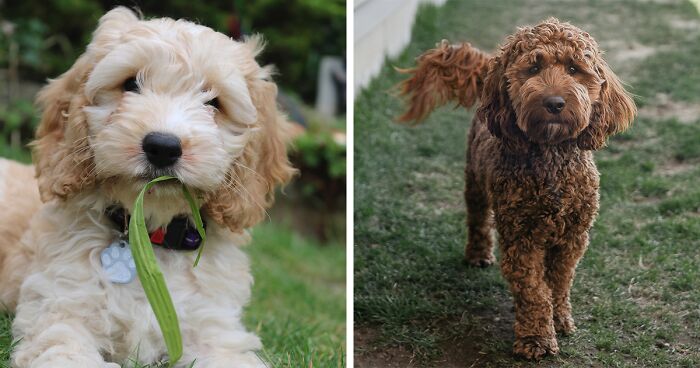
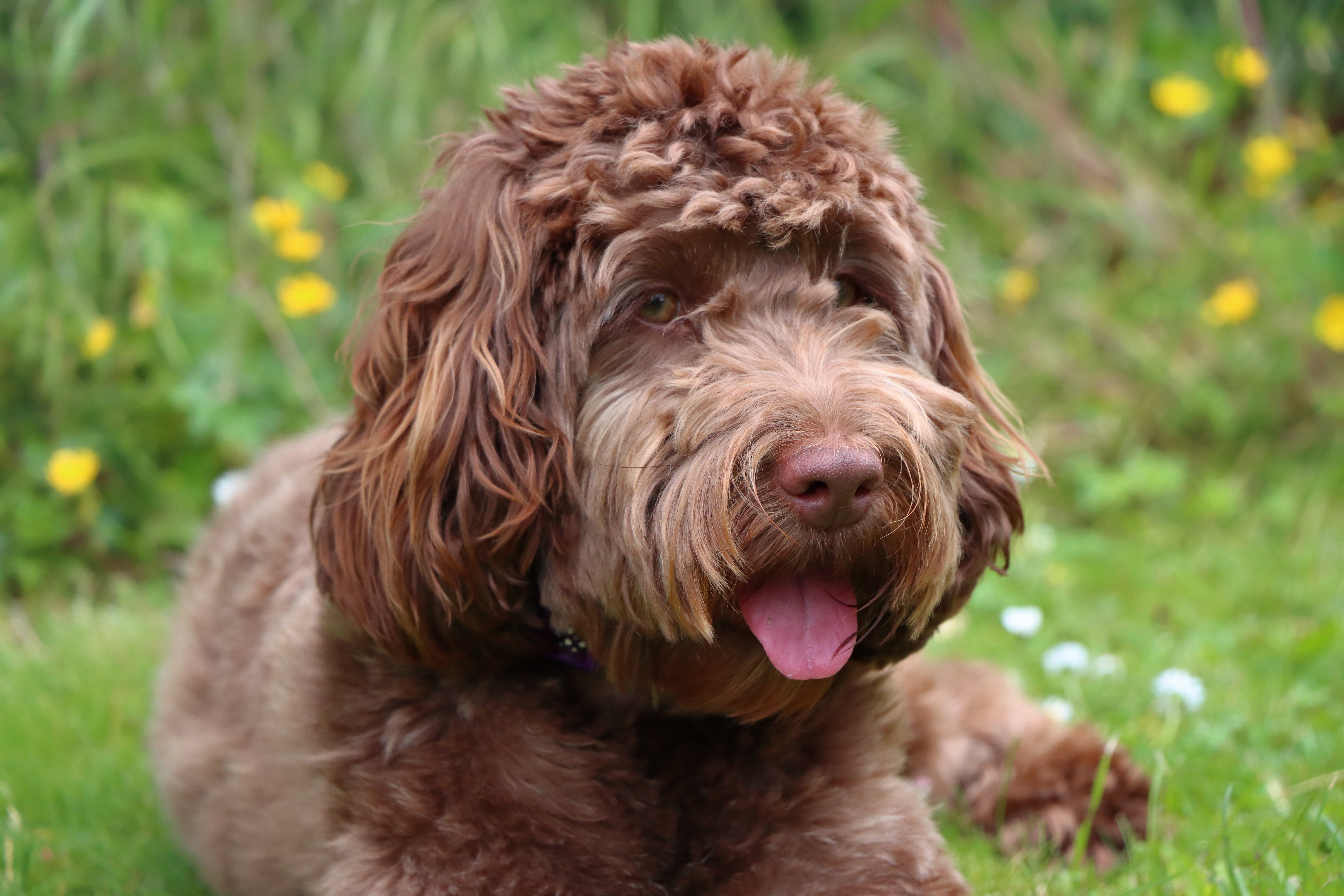 Image credits:
Image credits: 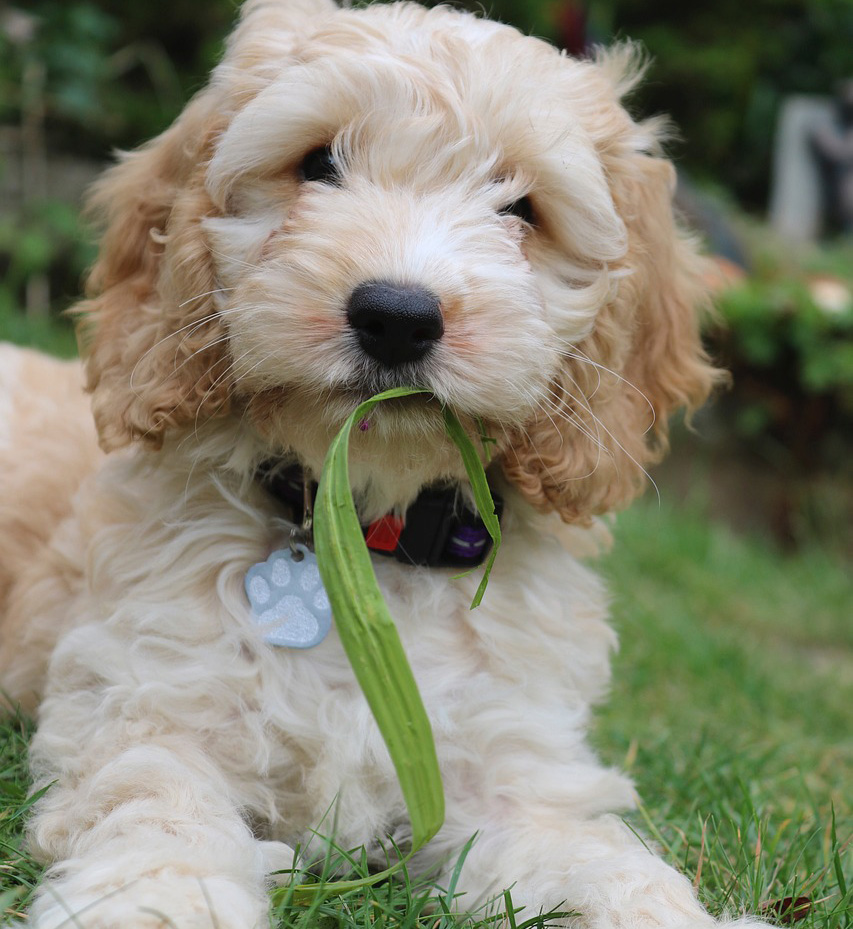 Image credits:
Image credits: 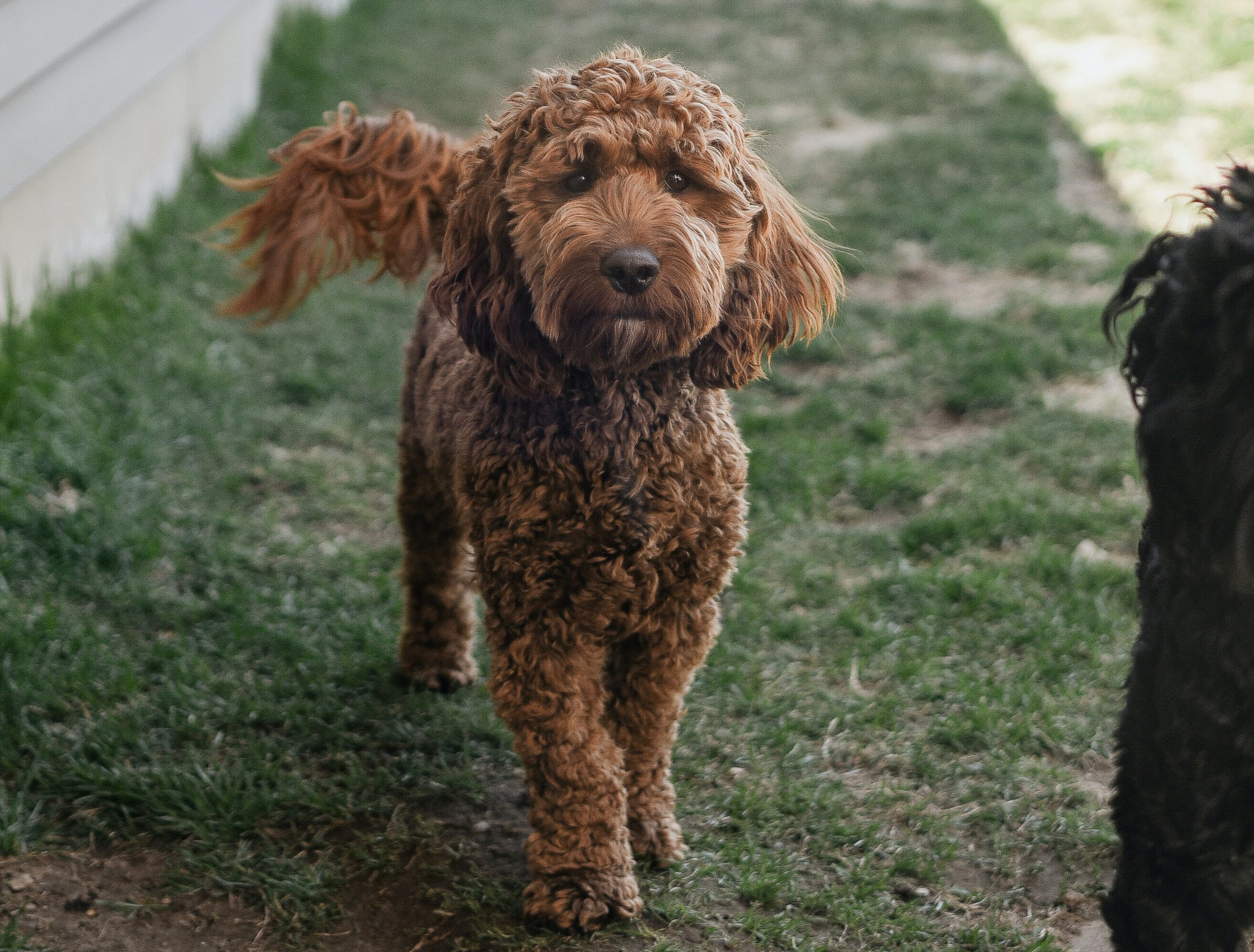 Image credits:
Image credits: 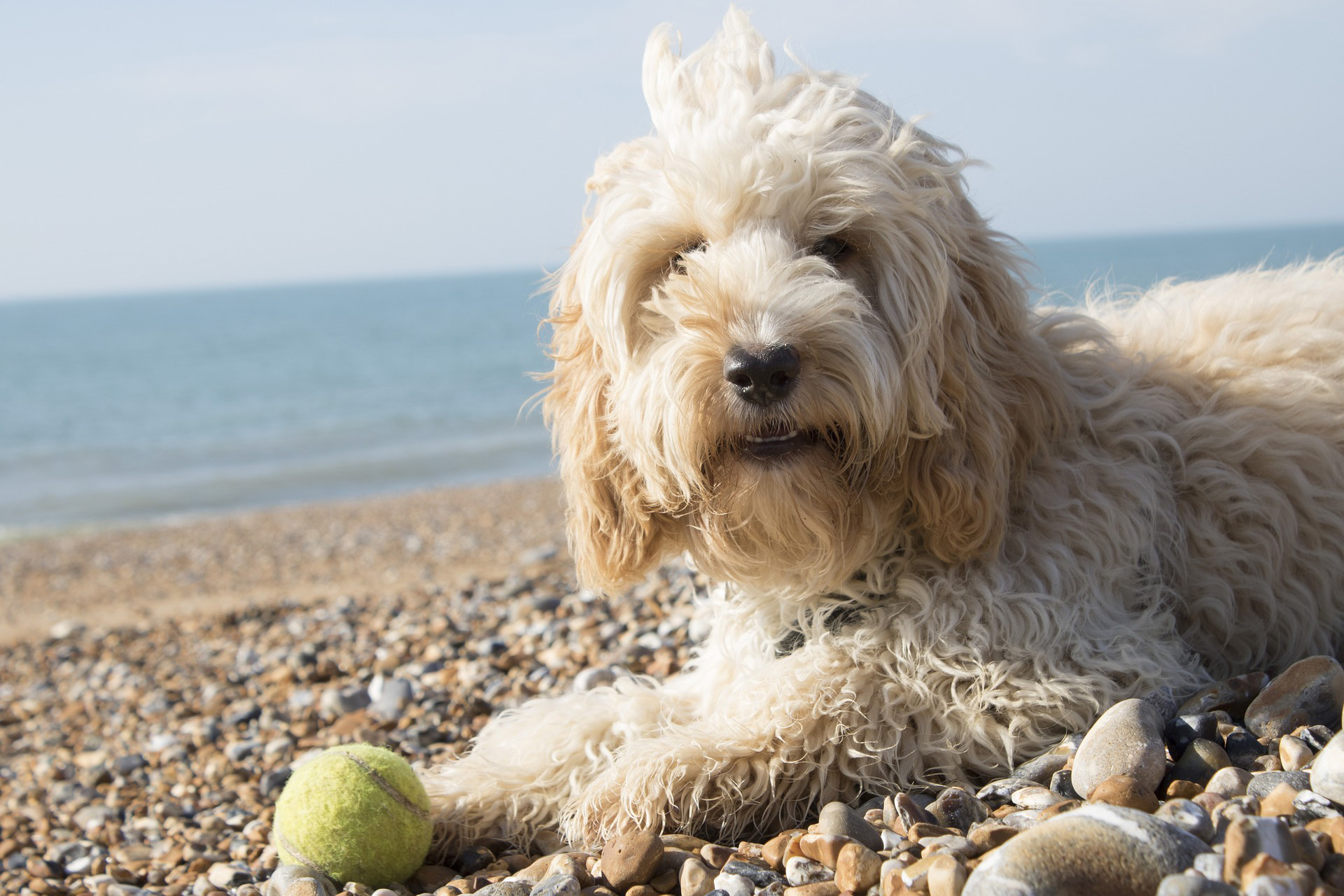 Image credits:
Image credits: 










































-1
1